Turkey Subjugates the Kurds because it Shares Isis' Ideological Bed
Turkey's Isis Policy: Subjugation of Kurds
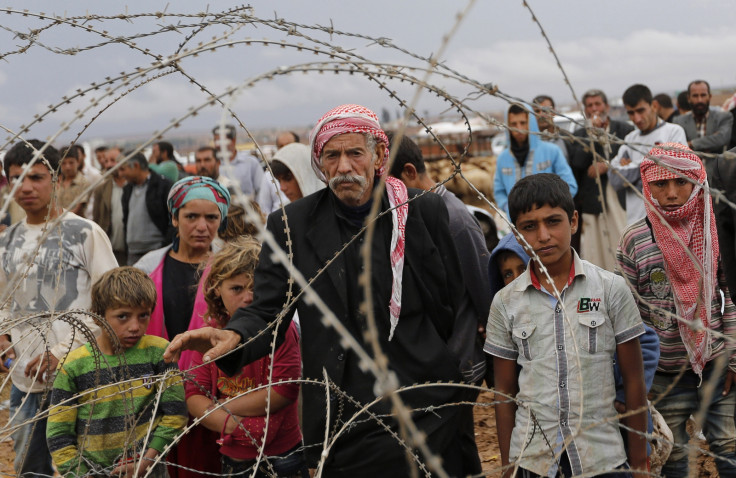
When Turkey's Justice and Development Party (AKP) government came to power in 2002, it defined itself not as an Islamic party but as a conservative democratic party, stating that Turkey's ascension bid to the European Union would be its strategic target.
Hence, the West thought that despite its Islamist roots, the AKP government was not going to pursue an overt Islamist agenda and thus was content with the new government of Turkey - until the ties of its "ally" with the jihadist groups in the Middle East recently came to light.
The founders of the AKP, including current Turkish president Tayyip Erdogan, were members of the Islamist Welfare and Virtue parties and came out of the National View movement of Dr Necmettin Erbakan, who founded a series of Islamist parties and was very influential as deputy prime minister in the 1970s and as prime minister in the 1990s.
No such thing as a 'Moderate Muslim'
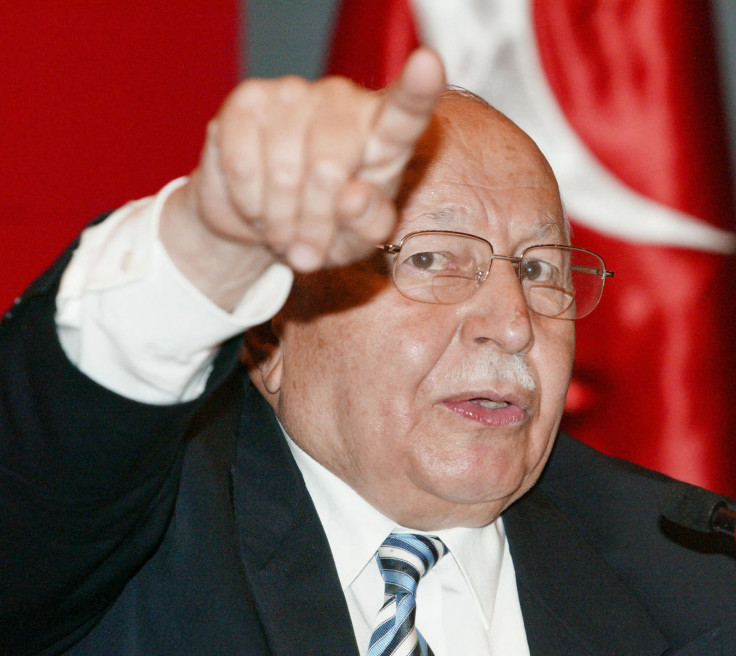
Erbakan, a former mentor of Erdogan, never appealed to the term "moderate Muslim" and openly criticised the report of the American RAND Corporation on Islam at a public meeting in 2007, saying that "being a moderate Muslim means being a slave to the Jew."
He explained: "What does 'moderate' mean? It means that a moderate will not have a consciousness of Jihad. He won't get involved with the system. He will be a slave to the Jew but will do his salat [five times a day Islamic prayers] and fast. The system, however, will be regulated by the Jew. The moderate will pay for the goods to the Jew. But do you want to do your salat? You can. Pay the money and do your salat."
He continued: "The report says that 'let's increase the number of Muslims who think that way. Let's give them money and possibilities. Let's encourage and promote them. Let's contact them with one another. Let's support and strengthen them so that they will take over the Muslim world and we will present Islam like that.' That is why they print Qurans after removing the verses of Jihad from them."
The AKP authorities - through their remarks, policies, and stance toward the Jihadist terrorist organizations in Iraq and Syria - have once more made it clear that Islamism and democracy could not go hand in hand.
Speaking on a national TV programme in 2007, Erdogan commented on the term "moderate Islam", reminding of Erbakan's former remarks on the issue. "These descriptions are very ugly, it is offensive and an insult to our religion. There is no moderate or immoderate Islam. Islam is Islam and that's it."
A year later, Erdogan's statements on moderate Islam were still the same.
Speaking at Oxford Centre for Islamic Studies in 2008, Erdogan rejected attempts to call Turkey the representative of moderate Islam: "It is unacceptable for us to agree with such a definition. Turkey has never been a country to represent such a concept. Moreover, Islam cannot be classified as moderate or not."
Turkey's response to Isis (Islamic State)
Ever since the outbreak of the wars in Syria and Iraq, several sources and witnesses reported that Turkey has aided the rise of Isis, enabling flows of funds, fighters, and support to it. Then, what is the point of Turkey's joining the US-led anti-Isis coalition after providing the Isis terrorists with all those facilities?
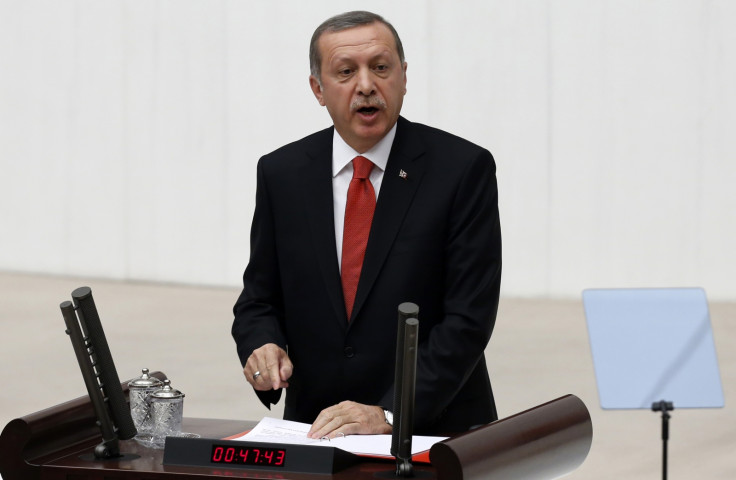
There are two things that should be taken notice of while analyzing Turkey's Isis policy. The first one is that the AKP government is not ideologically distant from the Isis. The second one is that the subjugation of Kurds has always been an institutionalized policy of Turkey and the current Turkish stance toward Isis is a continuation of this anti-Kurdish policy.
That is why, the AKP government abstained from calling Isis a terrorist organization for a long time. But it has recently and emphatically started calling it a terrorist organization, apparently in an attempt to refute the reports that the AKP government supports Isis and to compensate for its silence over the crimes of Isis.
On 29 September, Erdogan, for instance, finally referred to Isis as a terrorist organization, equating Isis with the PKK (Kurdistan Workers' Party).
"In my country, there is the PKK, a terrorist organization that has been active for 32 years. I wonder why this has not disturbed the world. The reason is this organization does not have "Islam" in its name. This means that [the world's] problem is something else. Isis has nothing to do with Islam," he said.
His words can be interpreted this way: The PKK and Isis are terrorist organizations and we can fight against both of them but the West takes notice of Isis alone, not because Isis is a terrorist organization, but because its name contains the word 'Islam'. So the West actually targets Islam.
Those words are a manifestation of Erdogan and his party's insincerity in their claims that they would fight against Isis. Coming from an Islamist political movement and not accepting a difference between moderate and immoderate Islam, can the authorities of AKP government genuinely join the fight against Isis, which they think is attacked by the West because it is Islamic?
Besides, if the PKK is a terrorist organization like Isis, why does the AKP government claim that it has been negotiating with its head, Abdullah Ocalan? Or do the AKP government officials pretend to be on negotiations with Ocalan in order to win the votes or support of Kurds in their election campaigns?
And if Isis is a terrorist organization, how would AKP authorities explain the numerous reports about the fact that Isis gets funds, fighters and support through or from Turkey?
Turkey sees Isis solving their Kurdish and Syrian problems
Since a television interview on 28 December, 2012, in which Erdogan said that the government was in negotiations with Ocalan, the jailed leader of the PKK, no concrete steps for constitutional and legal reform towards the recognition of the Kurds' right to self-rule have been taken.
And ever since the negotiations got started, the most concrete policy of the AKP government regarding Kurds' right to self government has been Turkey's reported support of ISIS which has besieged the Kurdish town of Kobani in Syria.
On 1 October, 2014, pro-government newspapers unveiled the Turkish government's projects on Syria:
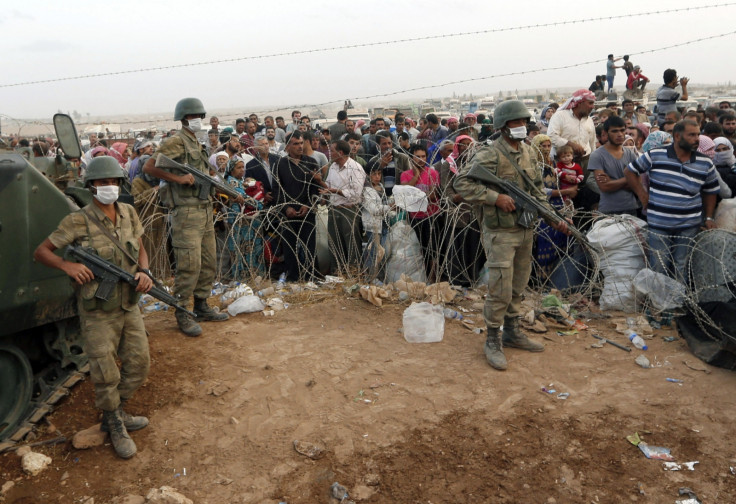
- Star newspaper featured the headline "Four threats, one memorandum", explaining Turkey's targets in Syria would be the Isis, the Assad Regime, radical organizations, and the PKK.
- Sabah newspaper reported "One memorandum for two fronts" in which the stated memorandum openly refers to Isis and the PKK as the two targets of Turkey.
- Yeni Safak newspaper reported that "a unilateral safe region" would be established in Syria.
- HaberTurk newspaper featured the headline "We can enter (Syria) on our own as well," stating that the Turkish army proposed its plan on Syria to the government.
Kurds in Turkey have not yet gained any legal rights from the resolution process which has been going on for at least 2 years, but in the midst of the escalating war, Syrian Kurds have taken a huge step in their quest for freedom and self-government, declaring autonomous administrations for their three ancient regions in Syrian Kurdistan, namely Kobani, Cizre, and Efrin.
On 7 October, however, Erdogan declared: "Right now, Kobani is on the brink of falling. The moderate opponent groups in Syria and Iraq must both be trained and equipped."
Erdogan, who has repeatedly rejected the term "moderate", seems to delight in using it while referring to the armed groups he supports in Syria.
Similarly, Emrullah Isler, the former deputy prime minister of Turkey and a current Ankara MP of the AKP, wrote a pro-ISIS tweet on 8 October, referring to Emrah Demir who was killed in the city of Batman a night before.
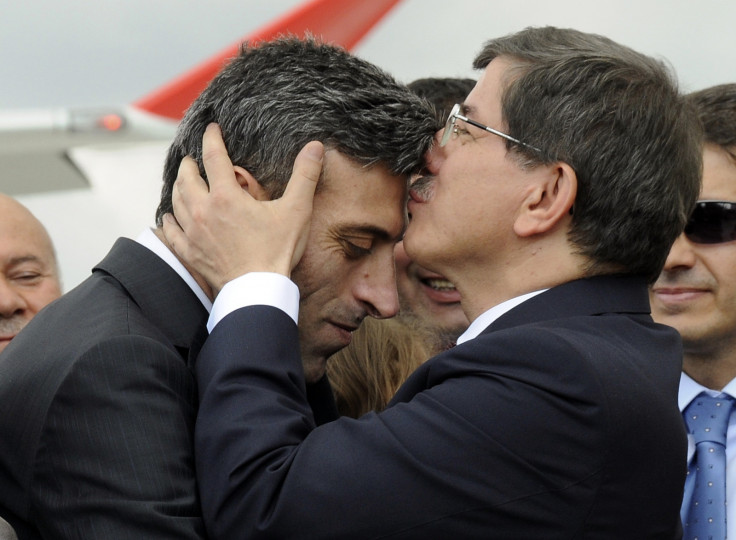
"What was the crime of the young man who was killed after his head was crushed with a stone? Isis cannot compete with those who did that. Isis kills but at least it does not torture people," he wrote on Twitter.
Turkish Prime Minister Ahmet Davutoglu also defended Isis against accusations of terrorism, when on 8 August he stating that "if Sunni Arabs had not been left out, there would not be such an accumulation of anger" - thus fabricating a context for the actions of Isis.
"The organization called Isis might look like a radical, terrorizing organization. But among its participants are Turks, Arabs, and Kurds," said Davutoglu. "That organization has emerged from former discontent and indignation which has created a great reaction on a large scale.
"If Sunni Arabs had not been left out in Iraq, there would not be such an accumulation of anger now. If Bashar Assad had listened to us when we said to him 'Do not let an ethnic community of 12% rule the country, this country belongs to all of you', those things would not have been experienced. ISIS is a growing threat due to anger but the essence of the issue must not be forgotten."
Just as Isis was besieging Kobani and fears were rising that the region might fall at the hands of the Isis terrorists, Erdogan's statement that "Isis and PKK are the same things" made the impression that by joining the US-led anti-Isis coalition, Turkey was looking forward to the future attempts of ISIS to annihilate the PKK, and its affiliate, the Democratic Union Party (PYD), which administers the three autonomous regions in Syrian Kurdistan.
Kurds fight back
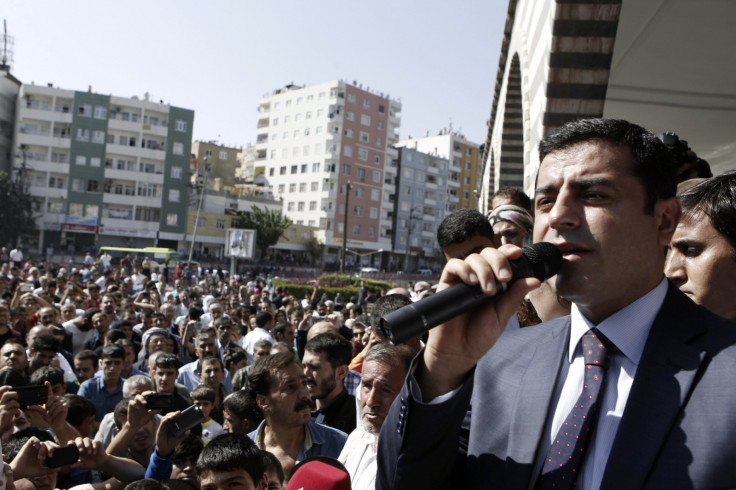
Frustrated by Turkey's support of Isis and wanting to raise awareness on a possible genocide against Kurds in Kobani, Kurds in Turkey took it to the streets this week. Turkish police and soldiers responded with harsh violence. At least 28 protestors have been killed and dozens have been wounded and hospitalized.
Supporting Isis terrorists against Syrian Kurds, Turkey does not make the impression that it aims to make peace with its own Kurds.
Given the AKP government's Neo-ottoman, imperial dreams, it seems that when it comes to subjugating Kurds, the government does not restrict itself to its own Kurds and its hands stretch towards Syrian Kurdistan, as well.
However, Its methods of subjugation may vary - it could join the future ground offensive in an attempt to occupy Syrian Kurdistan, try to establish a buffer zone between itself and Syria, or even annex Syrian Kurdistan if Kobani falls into the hands of Isis terrorists.
Sadly, Alawites, Yazidis, and Christians that have been beheaded or crucified, and young girls and women that have been raped or sold as concubines by Isis terrorists do not disturb the AKP authorities as much as Kurds that have declared autonomous administrations on their ancient homelands.
Uzay Bulut is a freelance journalist based in Ankara.
© Copyright IBTimes 2025. All rights reserved.





















